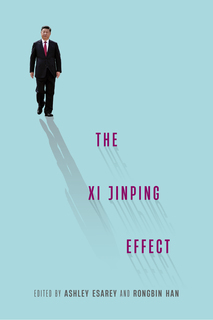The open access edition of The Xi Jinping Effect was made possible by funding from The China Institute at the University of Alberta.
The Xi Jinping Effect
The Xi Jinping Effect explores the relationship between the People's Republic of China's current "paramount leader"—arguably the most powerful figure since Mao Zedong (1893–1976)—and multiple areas of political and social transformation. It illuminates not just policy arenas in which his leadership of China has had an outsized impact but also areas where his initiatives have faltered due to unintended consequences, international pushback, or the divergence of local priorities from those of the central government. Collectively, the book's chapters document the ways in which Xi's neo-totalitarianism has dismantled Reform Era legacies, while reconfiguring governance and rewiring China's global connections. Contributions by anthropologists, historians, sociologists, and political scientists consider such issues as Xi's anticorruption campaign and obsession with ideological governance, state surveillance, the status of ethnic minorities and migrants, income inequality, and China's relations with Taiwan and Southeast Asia.
Contributors include Alexsia Chan, Timothy Cheek, Chih-Jou Chen, David Demes, Deng Kai, Ashley Esarey, Rongbin Han, Tony Tai-Ting Liu, Musapir, Kevin O'Brien, Andrew Wedeman, Martin King Whyte, Gerda Wielander, and Brantly Womack.

Metadata
- isbn9780295752822
- publisherUniversity of Washington Press
- publisher placeSeattle
- rightsCC-BY-NC-ND 4.0
- rights holderUniversity of Washington Press
- doi


